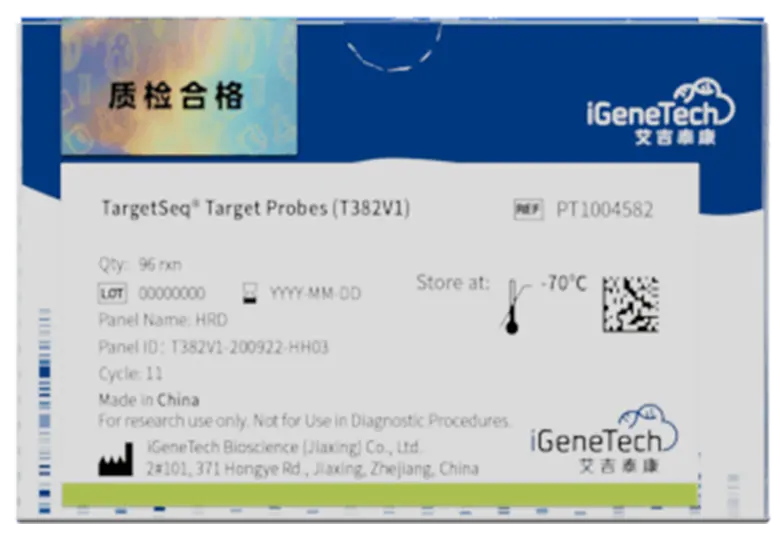In the field of cancer research and treatment, precision medicine has revolutionized the way we approach diagnosis and personalized treatment plans for patients. One significant advancement in this area is the development of High-Resolution DNA (HRD) panels, also known as the HRD gene panel. With the emergence of cutting-edge technologies, such as Next Generation Sequencing (NGS), molecular profiling has become an essential tool to understand individual patient's genetic makeup and identify potential therapeutic targets.
The hrd panel focuses on detecting genomic alterations associated with homologous recombination deficiency (HRD), an important biomarker for various cancer types. By analyzing a panel of genes specifically associated with HRD, researchers and oncologists can gain insight into the genomic instability of tumors. This information helps in predicting treatment response and improving patient outcomes through more personalized treatment strategies.

Another notable gene panel in the realm of cancer testing is the Homologous Recombination Repair (HRR) panel. HRR plays a critical role in DNA damage repair, and dysregulation of this pathway can contribute to cancer development and treatment resistance. The HRR gene panel involves the analysis of genes involved in HRR, providing valuable information about potential therapeutic targets and predicting response to DNA-damaging agents, such as PARP inhibitors.
Combining the data obtained from HRD and HRR panels can provide a comprehensive understanding of the DNA repair capabilities and genomic landscape of tumors. This knowledge is indispensable when selecting the most effective treatment strategies, minimizing unnecessary therapies, and avoiding potential adverse effects.
Innovative companies like igenetech have been at the forefront of developing and refining these gene panels, providing oncologists with precise, actionable insights for patient care. By leveraging advanced technologies and genetic profiling, the HRD and HRR gene panels offer significant potential for enhancing precision medicine approaches and improving patient outcomes.
In conclusion, the emergence of HRD and HRR gene panels has revolutionized cancer testing, enabling a deeper understanding of tumors' genetic makeup and informing personalized treatment strategies. With ongoing advancements in technology and the continuous expansion of gene panel content, these tools are set to play an increasingly important role in the field of precision medicine, offering new hope for cancer patients worldwide.